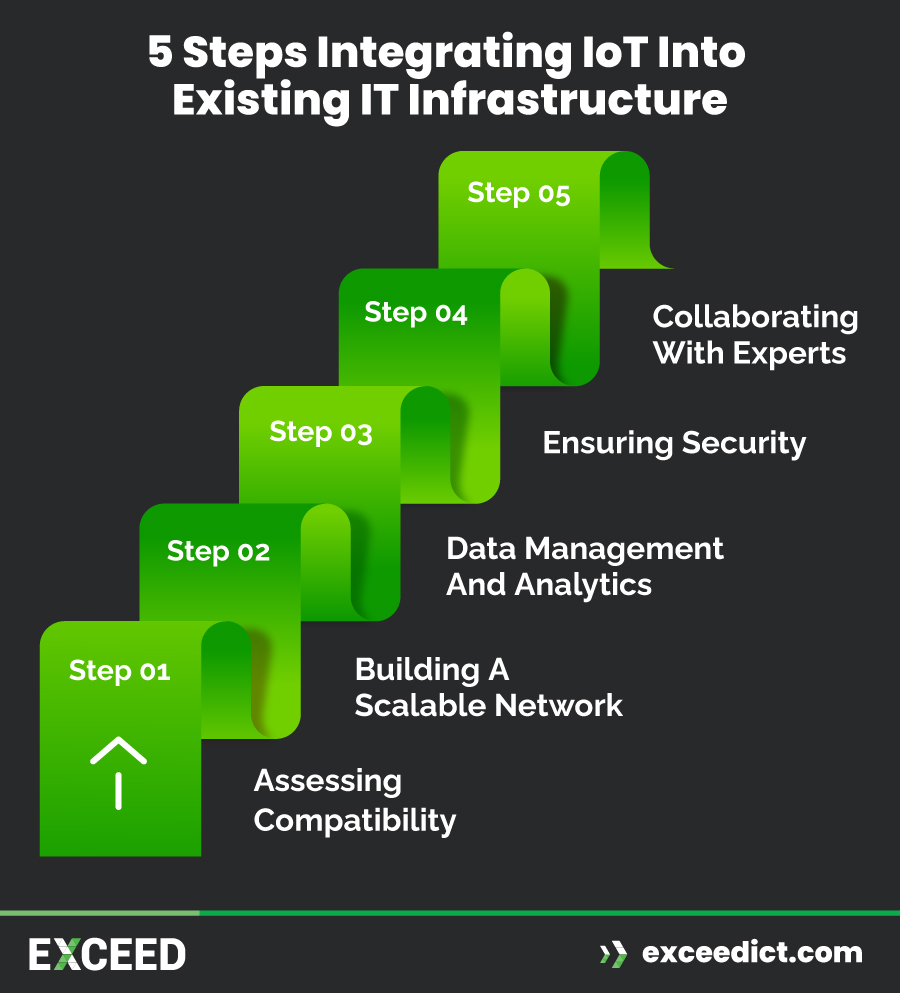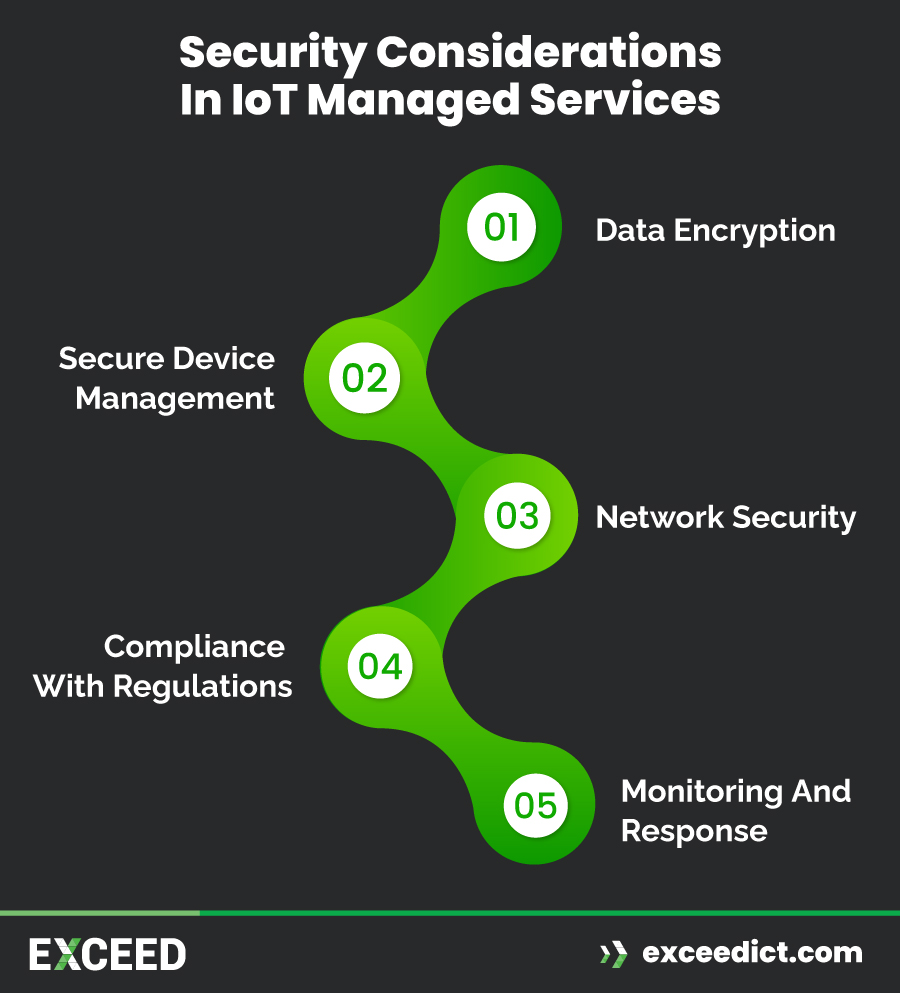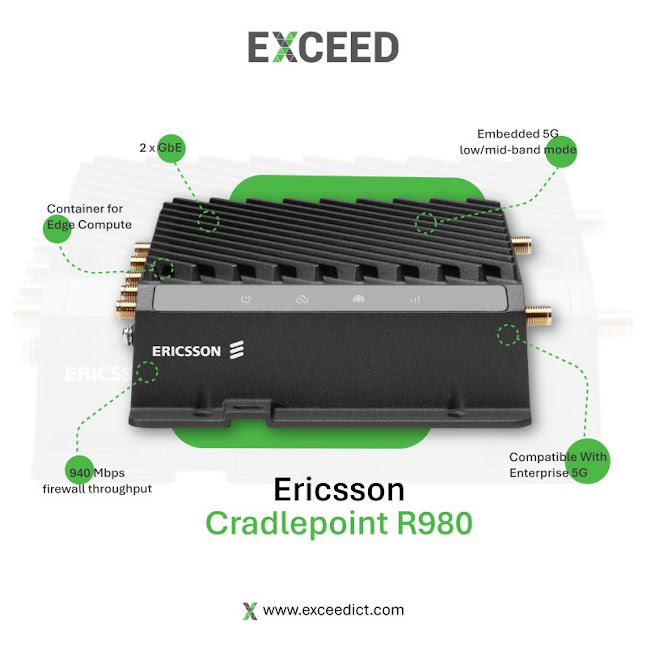In today’s fast-paced business landscape, staying ahead of the competition requires more than just innovation—it demands a commitment to operational efficiency and cost management. The Internet of Things (IoT) has emerged as a transformative force, enabling businesses to optimise their processes, enhance productivity, and reduce costs. However, the true potential of IoT can only be realised through effective management and integration. This is where IoT managed services come into play.
IoT managed services provide businesses with the expertise and infrastructure needed to deploy, manage, and scale IoT solutions effectively. These services cover everything from device management and data analytics to security and compliance, allowing businesses to focus on their core activities while leveraging the full benefits of IoT technology. In this article, we explore how IoT managed services can revolutionise business efficiency and significantly reduce operational costs.
Understanding the Concept of Business Efficiency
Business efficiency is a critical metric for any organisation. It measures how well a company can convert inputs (like time, resources, and labour) into outputs (products or services) while minimising waste. In essence, higher efficiency means achieving more with less—less time, less money, and fewer resources. In today’s competitive market, efficiency is not just about cutting costs; it’s about maximising value and maintaining a competitive edge.
Efficiency can be improved in many ways, from automating routine tasks to optimising supply chain management. However, traditional methods often have limitations, especially in complex and dynamic environments. This is where IoT managed services shine, offering new avenues to drive efficiency through real-time data, predictive analytics, and seamless automation.
The Role of IoT in Enhancing Business Efficiency
The integration of IoT technology into business operations can fundamentally transform how organisations operate. IoT devices can collect vast amounts of data from various sources, providing real-time insights into processes, systems, and workflows. This data can be analysed to identify inefficiencies, predict maintenance needs, and optimise resource allocation.
For example, in manufacturing, IoT sensors can monitor equipment performance and predict potential failures before they occur, reducing downtime and maintenance costs. In retail, IoT can enhance inventory management by tracking stock levels in real-time and automating reordering processes, ensuring that products are always available when needed without overstocking.
Furthermore, IoT can improve energy efficiency by monitoring and controlling energy use across facilities. Smart lighting systems, HVAC controls, and energy-efficient devices can be managed remotely, reducing energy consumption and lowering utility bills. Overall, IoT enables businesses to make data-driven decisions, streamline operations, and eliminate waste, leading to significant improvements in efficiency.
Key IoT Applications in Business Operations
The versatility of IoT technology means it can be applied across a wide range of industries and business functions. Here are some key applications of IoT in business operations:
- Manufacturing: IoT enables predictive maintenance, real-time monitoring, and automation in production lines, leading to higher productivity and reduced downtime.
- Retail: IoT enhances inventory management, improves customer experiences with personalised services, and optimises supply chains.
- Logistics and Transportation: IoT helps in tracking shipments, managing fleets, and ensuring timely delivery while reducing fuel consumption and operational costs.
- Healthcare: IoT devices monitor patient health, manage medical equipment, and streamline hospital operations, improving care quality and efficiency.
- Energy Management: IoT optimises energy use in buildings, reduces waste, and supports the integration of renewable energy sources.
- Agriculture: IoT supports precision farming by monitoring soil conditions, weather patterns, and crop health, leading to better yields and resource management.
Each of these applications demonstrates how IoT can drive efficiency and cost savings across different sectors, making it a valuable tool for businesses aiming to improve their operations.
Integrating IoT into Existing IT Infrastructure

One of the challenges businesses face when adopting IoT solutions is integrating them into their existing IT infrastructure. Successful integration requires careful planning and execution to ensure that IoT devices, networks, and applications work seamlessly with current systems.
- Assessing Compatibility:
Before integrating IoT solutions, businesses must assess the compatibility of their existing IT infrastructure. This includes evaluating network capacity, data storage, and processing capabilities to ensure they can handle the increased data flow from IoT devices. - Building a Scalable Network:
IoT devices often require a robust and scalable network to support real-time data transmission and processing. Businesses should consider upgrading their networks to handle the additional load and ensure reliable connectivity. - Data Management and Analytics:
IoT generates vast amounts of data that need to be stored, managed, and analysed effectively. Integrating IoT with cloud-based solutions can provide the necessary storage and processing power while offering scalability and flexibility. - Ensuring Security:
Security is a critical consideration when integrating IoT into existing systems. Businesses must implement strong security protocols, such as encryption and access controls, to protect sensitive data and prevent unauthorised access. - Collaborating with Experts:
Given the complexity of IoT integration, partnering with experienced IoT managed service providers, like Exceed ICT, can ensure a smooth and successful implementation. These providers offer the expertise and support needed to integrate IoT solutions with minimal disruption to business operations.
- Assessing Compatibility:
The Cost Efficiency Factor in IoT Implementation
While the initial investment in IoT technology can be significant, the long-term cost savings it offers are substantial. IoT managed services play a crucial role in maximising these savings by ensuring that IoT solutions are deployed and managed efficiently.
- Reducing Operational Costs:
IoT enables businesses to automate routine tasks, monitor equipment in real-time, and optimise resource use, all of which contribute to lower operational costs. For example, predictive maintenance reduces the need for costly emergency repairs, while smart energy management systems lower utility bills. - Minimising Waste:
IoT can help businesses reduce waste by providing real-time insights into production processes, inventory levels, and energy use. This enables more precise control over operations, leading to less waste and higher resource efficiency. - Improving Asset Utilisation:
IoT allows businesses to monitor and manage assets more effectively, ensuring that they are used to their full potential. This reduces the need for additional equipment and lowers capital expenditure. - Enhancing Productivity:
By streamlining operations and eliminating inefficiencies, IoT can significantly enhance workforce productivity. Employees can focus on higher-value tasks while routine activities are automated, leading to higher output and lower labour costs. - Achieving a Faster ROI:
The cost savings generated by IoT solutions contribute to a faster return on investment (ROI). Businesses can recoup their initial investment more quickly and start reaping the financial benefits of IoT sooner.
- Reducing Operational Costs:
Scalability of IoT Solutions for Growing Businesses
As businesses grow, their operational needs evolve, and their IT infrastructure must scale accordingly. One of the key advantages of IoT managed services is their ability to support scalable solutions that can grow with the business.
- Flexible Deployment:
IoT managed services offer flexible deployment options that can be tailored to the specific needs of the business. Whether it’s a small-scale pilot project or a large-scale implementation, IoT solutions can be scaled up or down as needed. - Modular Architecture:
IoT systems are often built on a modular architecture, allowing businesses to add or remove devices and applications as their needs change. This modularity ensures that businesses can scale their IoT solutions without overhauling their entire IT infrastructure. - Cloud-Based Solutions:
Cloud computing plays a vital role in the scalability of IoT solutions. Cloud-based IoT platforms provide the necessary storage, processing power, and analytics capabilities to support large-scale deployments. They also offer the flexibility to scale resources up or down based on demand. - Supporting Business Expansion:
As businesses expand into new markets or increase their operations, IoT managed services ensure that their IoT infrastructure can keep pace with growth. This includes adding new devices, integrating additional data sources, and expanding network capacity. - Managing Increased Data Volumes:
As the number of IoT devices increases, so does the volume of data generated. IoT managed services provide the tools and expertise needed to manage and analyse this data effectively, ensuring that businesses can continue to derive valuable insights as they scale.
- Flexible Deployment:
Security Considerations in IoT Managed Services

Security is a critical concern when it comes to IoT. The interconnected nature of IoT devices creates multiple entry points for cyber threats, making robust security measures essential.
- Data Encryption:
Data encryption is vital for protecting sensitive information transmitted between IoT devices and central systems. IoT managed service providers implement strong encryption protocols to safeguard data from unauthorised access. - Secure Device Management:
IoT devices need to be managed securely to prevent unauthorised access and tampering. This includes using strong authentication methods, such as multi-factor authentication, and regularly updating device firmware to patch vulnerabilities. - Network Security:
The network connecting IoT devices must be secure to prevent cyberattacks. IoT managed service providers use firewalls, intrusion detection systems, and other security tools to protect the network from threats. - Compliance with Regulations:
Many industries have strict regulations regarding data security and privacy. IoT managed services ensure that businesses comply with these regulations by implementing the necessary security measures and maintaining detailed records of data handling practices. - Monitoring and Response:
Continuous monitoring is essential for identifying and responding to security threats in real time. IoT managed service providers offer 24/7 monitoring services, along with rapid response capabilities, to address any security incidents as they arise.
- Data Encryption:
Choosing the Right IoT Managed Service Provider
Selecting the right IoT managed service provider is critical to the success of any IoT project. The provider should have the expertise, resources, and track record to deliver high-quality services that meet the specific needs of your business.
- Industry Experience:
Look for a provider with extensive experience in your industry. They should understand the unique challenges and opportunities within your sector and have a proven track record of delivering successful IoT projects. - Comprehensive Services:
The provider should offer a full range of IoT managed services, from device management and network security to data analytics and compliance. This ensures that all aspects of your IoT deployment are handled by a single, trusted partner. - Customisation:
IoT solutions are not one-size-fits-all. The provider should offer customised solutions that are tailored to your business’s specific needs and objectives. - Scalability:
As your business grows, your IoT needs will change. Choose a provider that offers scalable solutions and has the capacity to support your business as it expands. - Strong Support and Service Level Agreements (SLAs):
The provider should offer robust support services, including 24/7 monitoring, rapid response times, and clear SLAs that guarantee a high level of service.
- Industry Experience:
Exceed ICT’s Expertise in IoT Managed Services
Exceed ICT is a leading provider of IoT managed services in Australia, partnering with Telstra to deliver cutting-edge solutions to businesses across the country. With a deep understanding of the unique needs of Australian businesses, Exceed ICT offers a comprehensive suite of services that help organisations harness the power of IoT to boost efficiency and reduce costs.
- Industry-Specific Solutions:
Exceed ICT specialises in delivering IoT solutions tailored to the specific needs of industries such as manufacturing, retail, logistics, and healthcare. Their industry expertise ensures that businesses receive solutions that address their unique challenges and opportunities. - End-to-End Services:
From initial consultation and planning to deployment and ongoing management, Exceed ICT provides end-to-end IoT services that cover every aspect of your IoT journey. This comprehensive approach ensures a seamless and successful implementation. - Cutting-Edge Technology:
As a Telstra partner, Exceed ICT leverages the latest IoT technologies and platforms to deliver innovative solutions that drive business success. Their use of advanced analytics, machine learning, and AI ensures that businesses can extract maximum value from their IoT investments. - Strong Security and Compliance:
Exceed ICT places a strong emphasis on security and compliance, ensuring that all IoT solutions meet industry regulations and protect sensitive data from cyber threats. Their robust security measures provide peace of mind to businesses in an increasingly connected world. - Proven Track Record:
With a portfolio of successful IoT projects, Exceed ICT has a proven track record of helping businesses improve efficiency, reduce costs, and achieve their strategic goals through IoT managed services.
- Industry-Specific Solutions:
Case Studies: Success Stories of IoT in Action
Real-world examples demonstrate the transformative impact of IoT managed services on business efficiency and cost reduction. Here are some success stories of businesses that have benefited from Exceed ICT’s IoT solutions:
- Manufacturing:
A leading Australian manufacturer implemented IoT sensors across its production lines to monitor equipment performance and predict maintenance needs. As a result, the company reduced downtime by 30% and lowered maintenance costs by 25%, leading to significant improvements in operational efficiency. - Retail:
A major retail chain deployed IoT-based inventory management systems to track stock levels in real-time. The system automatically reordered products when stock was low, reducing stockouts by 40% and improving customer satisfaction. - Logistics:
A logistics company used IoT devices to monitor its fleet and optimise delivery routes. The company reduced fuel consumption by 15% and improved delivery times by 20%, leading to lower operational costs and higher customer satisfaction.
- Manufacturing:
These case studies illustrate how IoT managed services can deliver tangible benefits, from cost savings to enhanced operational efficiency.
Future Trends in IoT Managed Services
The field of IoT is continuously evolving, with new trends and technologies shaping the future of IoT managed services. Here are some key trends to watch:
- AI and Machine Learning Integration:
The integration of AI and machine learning with IoT is enabling more sophisticated data analysis and decision-making. These technologies allow businesses to predict trends, automate processes, and respond to changes in real-time, further enhancing efficiency and cost-effectiveness. - Edge Computing:
Edge computing, where data processing occurs closer to the data source rather than in a centralised cloud, is becoming increasingly important in IoT deployments. This reduces latency and bandwidth use, making IoT systems faster and more efficient. - 5G Connectivity:
The rollout of 5G networks is expected to significantly boost the capabilities of IoT devices, offering faster data transmission, lower latency, and the ability to connect more devices simultaneously. This will open up new possibilities for IoT applications, particularly in industries like manufacturing, healthcare, and smart cities. - Increased Focus on Security:
As the number of IoT devices grows, so does the need for robust security measures. Future IoT managed services will place even greater emphasis on security, with advancements in encryption, authentication, and threat detection. - Sustainability and Energy Efficiency:
With a growing focus on sustainability, IoT managed services will increasingly incorporate energy-efficient solutions that help businesses reduce their carbon footprint while cutting costs.
- AI and Machine Learning Integration:
IoT as a Strategic Asset for Businesses
IoT managed services offer businesses a powerful tool to enhance efficiency, reduce costs, and stay competitive in a rapidly changing market. By leveraging IoT technology, businesses can optimise their operations, make data-driven decisions, and achieve significant cost savings. With the right IoT managed service provider, such as Exceed ICT, businesses can unlock the full potential of IoT and drive long-term success.
FAQs
What are IoT managed services?
IoT managed services involve the deployment, management, and monitoring of IoT devices and systems by a third-party provider. These services include device management, data analytics, security, and support, enabling businesses to leverage IoT technology without the need for in-house expertise.
How can IoT managed services improve business efficiency?
IoT managed services improve business efficiency by automating processes, providing real-time data insights, and optimising resource use. This leads to faster decision-making, reduced waste, and enhanced productivity.
What are the cost benefits of IoT managed services?
The cost benefits of IoT managed services include reduced operational costs, lower maintenance expenses, improved asset utilisation, and enhanced energy efficiency. These savings contribute to a faster return on investment.
Why is security important in IoT managed services?
Security is crucial in IoT managed services because IoT devices are often interconnected and can be vulnerable to cyberattacks. Robust security measures, such as encryption and access controls, protect sensitive data and ensure the integrity of IoT systems.
How do IoT managed services support business growth?
IoT managed services support business growth by providing scalable solutions that can expand with the business. This includes adding new devices, increasing data processing capacity, and ensuring reliable connectivity as the business grows.
Why should I choose Exceed ICT for IoT managed services?
Exceed ICT offers industry-specific expertise, comprehensive services, cutting-edge technology, and strong security measures, making them a trusted partner for IoT managed services. Their proven track record and partnership with Telstra ensure high-quality solutions tailored to your business needs.
📞Looking for IoT managed services to boost efficiency and cut costs?
Call us at 1300 832 639 for stress-free IoT management! At EXCEED ICT, our experienced team is ready to help you streamline processes and optimise expenses.
With our award-winning expertise and commitment, we guarantee efficient management of your IoT services.
Find Related Blogs
- How does IoT Asset Management contribute to business growth?.
- ICT Asset Management: A Comprehensive Guide.
- Assets Management Solutions in Australia.
- Assets Management Services in Australia.
Stay connected with EXCEED ICT
Stay connected with EXCEED ICT by joining our social networks (given at footer). Get the latest updates, news, and tips for enterprise device deployment. Follow us on Twitter, Facebook, and LinkedIn for the best enterprise device deployment solutions.
Help us to improve our enterprise by rating us on Google Maps. Your feedback and comments are valuable to us and will be used to make our services even better.
For more information, please visit our website: IoT Managed Services


Comments
Post a Comment